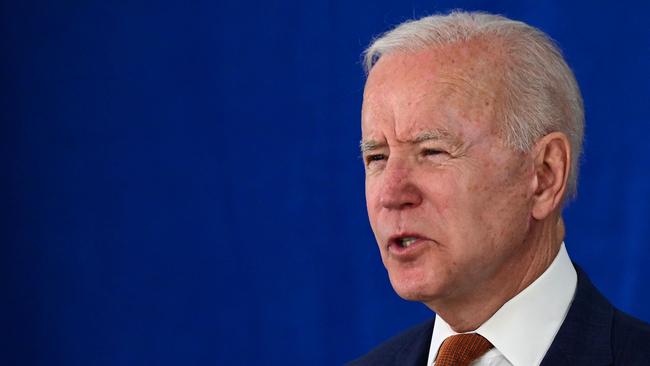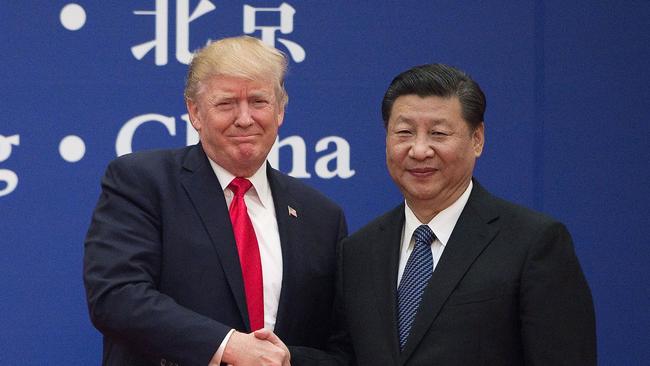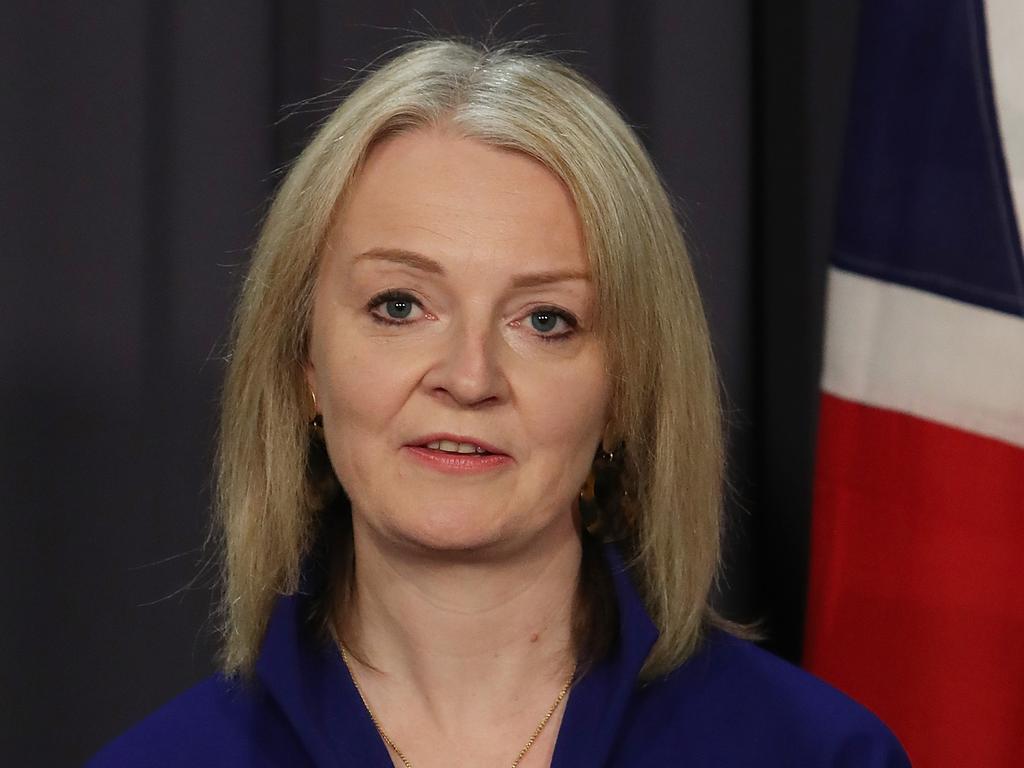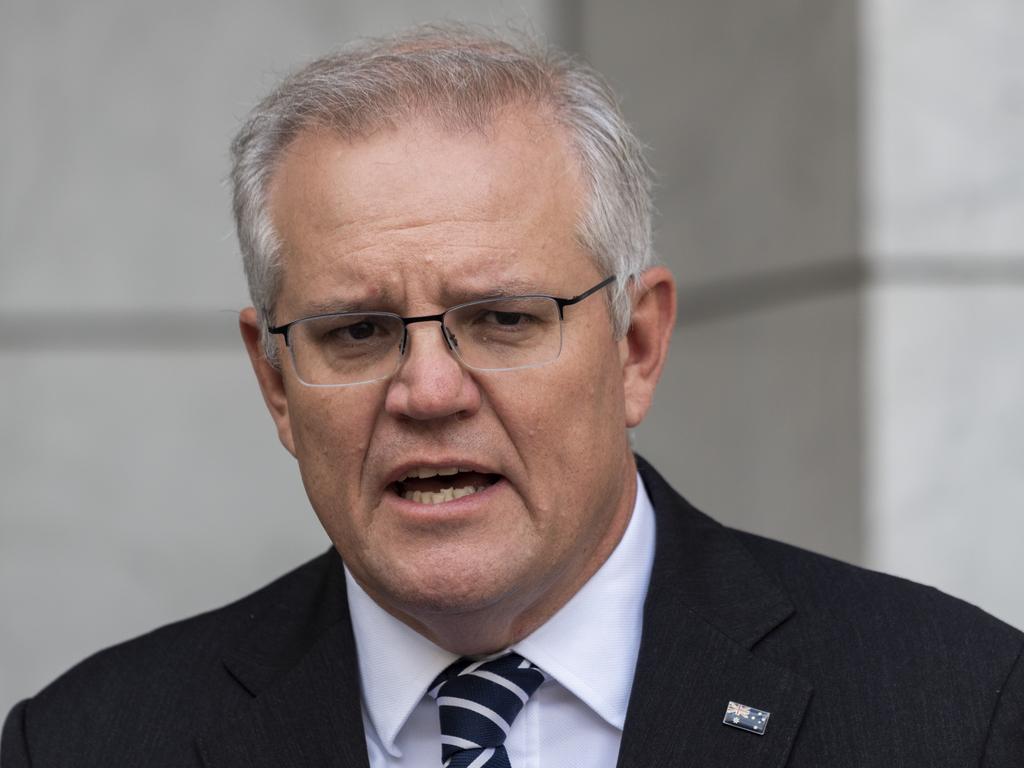‘Strike force’ to break Beijing’s grip on trade
The US will target China to counter unfair trade practices after a review concluded that America had become too reliant on its rival.

The United States will target China with a “strike force” to counter unfair trade practices after a review concluded that America had become too reliant on its rival for key technologies.
A “supply chain disruptions task force” is being set up to reverse the “hollowing out” of American production of batteries, raw materials, semiconductors and pharmaceuticals, officials in Washington said. The Senate is also set to approve the spending of $US250 billion to compete with Chinese technology, which is expected to lead to up to ten US semiconductor plants being built.
President Biden has set out to reduce America’s dangerous dependence on imports, highlighted by shortages of medical resources such as protective equipment during the coronavirus pandemic.
Biden was criticised by Republicans during the election campaign for supposedly being soft on China but has found that taking action to assert US manufacturing and technological independence from Beijing is almost the only policy area where the two main parties are united. He ordered a review of critical supply chains in February, and although it was not explicitly directed at China, it was part of a strategy to shore up American competitiveness.
“Semiconductors are the building blocks that underpin so much of our economy and are essential to our national security, our economic competitiveness and daily lives,” Gina Raimondo, the commerce secretary, said. “The United States is facing two related crises in supply chains for these critical goods – a short-term shortage and a long-term challenge to US leadership.”

A senior official said that unfair trade practices used by “a number of foreign governments” included government subsidies and forced intellectual property transfers. “Obviously, a number of Chinese industrial policies have contributed to vulnerable US supply chains,” the official said. “I think you are going to see this strike force feeding into our China policy developments.”
When he announced the review Biden said: “We shouldn’t have to rely on a foreign country – especially one that doesn’t share our interests or our values – in order to protect and provide for our people during a national emergency. This is about making sure the United States can meet every challenge we face in this new era – pandemics, but also in defence, cybersecurity, climate change and so much more.”
The administration plans to use the Defense Production Act to accelerate efforts to manufacture 50 to 100 vital drugs domestically rather than relying on imports.
It also plans to start trade and investment talks with Taiwan, which is likely to infuriate Beijing. The talks may fall short of a full trade pact but they are a sign that Washington is forging closer ties with Taiwan despite Beijing’s repeated protests about any official contact between Washington and Taipei.
“I know we are engaged in conversations with Taiwan, or soon will be,” Antony Blinken, the secretary of state, told a congressional committee.
China regards the self-governed island as part of its territory and has vowed to reclaim it, by force if needed.
This week an American strategic transport aircraft carried three US senators for a three-hour visit to Taiwan. They announced a plan for the US to donate 750,000 vaccines and pledged Washington’s support for the island. There was speculation that Beijing would react angrily, but it has made only its usual protests.
In Washington the US trade representative’s office said it had no meetings with Taiwan to announce.
The standing committee of China’s parliament is to approve an anti-foreign sanctions law tomorrow on Thursday.
POLICE SUPPRESS STUDENT PROTEST
Police suppressed rare protests in China on Tuesday by students worried that degrees would be devalued by a merger of university colleges with vocational schools.
Police in Danyang, a city in the east, said that students “illegally detained” the dean of Zhongbei College, which is affiliated with Nanjing Normal University, for more than 30 hours. The merger plans were suspended in an attempt to end the protests.
It was a rare public admission of mass protests in China. An online video showed a standoff between students and police in Danyang, and similar protests were reported in the nearby province of Zhejiang.
Chinese families place a high premium on university education. Entrance exams are competitive, and about 40 per cent of those who sit them go on to higher education, being admitted to one of three tiers of establishment in accordance with their score.
Students in Zhejiang told Zhengguan News, a state-run news site, that they feared their college degrees would be “downgraded to a vocational degree”.
The Times







To join the conversation, please log in. Don't have an account? Register
Join the conversation, you are commenting as Logout